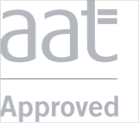
For most of us, we’re taught that self-discipline is a vital skill that paves the way to success in the future. From school assemblies, to revising for exams, to doing your job effectively in adult life, self-discipline is something that is learned and stays with you throughout the whole of your life. Think back for a second… do you remember that feeling at school? When you had completed all the set tasks for the hour, you would be praised by the teacher for having the discipline to sit and finish everything? The truth is, wanting that kind of satisfaction never really goes away; the same concept is what we want at work. There is no doubt in my mind that we all crave the feeling of being productive, creative or being praised, and self-discipline is definitely a factor in acquiring this.

As a follow-on from my previous article, ‘Moving into Management’, we will look at how managers and senior members of staff can encourage colleagues and employees to look at the positives of self-discipline, helping them to apply it to their own routines. Unfortunately, self-discipline doesn’t always stay with some people as much as it does others, and that’s why training may be a necessity. There are several ways in which you can implement positive self-discipline in your workplace.
Encourage Self-Evaluation
As much as it can be difficult to, sometimes people need to look at themselves and evaluate their work ethic. Gentle reminders in meetings or appraisals should do the trick. Self-evaluations can be conducted by answering a series of questions. To begin with, encourage people to look at and admit their weaknesses first:
- Have you lost your focus?
- Does your lifestyle match up to that of a motivated, positive and self-disciplined person?
- Could you have done more in previous tasks or improved in certain areas?
- Do the people around you inspire you to remain disciplined?
- And more importantly, do you inspire others to remain self-disciplined?
Questions such as these can be an added element to appraisals or even implemented as a training exercise within your workplace. Challenging people to be honest with themselves is a great way of overcoming any lack in self-discipline. By highlighting areas to develop, people are more likely to discipline themselves to improve their weaknesses. This is key to achieving an environment that thrives on people taking responsibility for their own tasks and directives. Therefore, encourage staff and colleagues to set time aside regularly so they can honestly review their own performance and highlight areas that they feel could be perfected in their day-to-day activities.
Making colleagues feel confident about themselves is a great way to initiate upskilling and developing self-discipline. Ask questions that will leave them feeling good about themselves by getting them to think about their strengths:
- Have there been tasks you’ve excelled in?
- Can you give an example of when you’ve met challenges or difficulties and overcome them with self-discipline?
- What keeps you motivated?
- And more importantly, think about examples where you have inspired other to remain self-disciplined?
Knowing that you have particular strengths gives people an incentive to use their self-discipline to overcome problems to achieve success. When people are more mindful of their reactions, they have a higher chance of being self-disciplined to accomplish individual progress.
Setting up initiatives is a great way to help the whole organisation lead a slightly healthier lifestyle which in turn, promotes self-discipline. For example, are there ways you could incorporate a flexible working pattern in your department or workplace? How about starting up lunch time exercise groups as a positive way to promote light exercise while working? Science tells us that we should have a balanced and healthy diet, sleep for 7/8 hours a night and exercise regularly. In an ideal world, this would be easy but unfortunately, reality is something different entirely.
Ultimately, implementing self-evaluations within the organisation will help each person improve their self-discipline. Schedule regular meetings where you’re open and honest, helping to keep on top of these initiatives, so your team members are continuously improving their own willpower.
Desire and Goals
Following on from self-evaluation, another method that helps with self-discipline is to highlight and emphasise the importance of desire and goals. If everyone has something to strive towards, they’re likely to discipline themselves to get the job done. As a result, the reward for maintaining that self-discipline is the satisfaction and pride of completing a job or project to their very best standard.
In order for this to work, set out clear, positive goals. If people know that they’re working towards something that really matters, it will naturally urge them to sit down and work on their goals and tasks to their full potential. Similarly, as a manager, you need to focus on not just larger, overall career goals for your team, but also the smaller goals that are quick to achieve and in turn, help to keep the team motivated. Long term desires with short term goals is one way forward. Finding the right balance between small, achievable goals, and a long-term desire is imperative. Schedule some time with your team members, either in a one-to-one meeting or an annual appraisal, and help them to outline their goals and aspirations for the year. They can then implement a plan and timeline that will allow them to achieve this through their own self-discipline.
Respect
Do you trust and respect your team enough to let them get on with the tasks they have at hand? More importantly, is the respect mutual? A mutual respect between yourself and your team is vital when establishing the importance of self-discipline.
As a manager, you need to ensure you have enough respect and belief in your team to know that their self-discipline will help to keep the office and their own jobs running efficiently. Every team member must know that they are responsible for their own work rate, and what is expected of them. Nobody likes being micro-managed or patronised so put your faith in your team and have confidence that they‘re exercising their skill to maintain self-discipline to get their jobs done positively and efficiently.
Training
Ensure that there is regular training in your team’s area of expertise to guarantee that they’re consistently on the top of their game. If your team members are constantly learning, they will be more encouraged to be motivated. Staying in the same rut for too long could lead to a loss of motivation, resulting in a loss of self-discipline to complete tasks.
Self-discipline is a learned skill and something that is not inherent in our nature. Consequently, the need for training is very important.
Don’t underestimate the need to update your own and your team members’ skills. Embrace the concept of lifelong learning and CPD. Positive attitudes towards learning and the need to improve yourself and your team will be passed onto others, creating a great environment, atmosphere and workplace that thrives on self-discipline and motivation.
Expectation
Creating a good workplace atmosphere is down to laying out your expectations from the offset. When people know what is expected, they’re more likely adhere to that. Having clear expectations put in front of you makes it easier to know what to do. Your team can then prioritise and plan accordingly, helping them to maintain their self-discipline while at work. Nevertheless, try to ensure that your expectations adhere to the positive nature of your working environment by giving praise every now and then. Even if your colleagues are simply doing their job, providing commendations gives employees that extra push to maintain their self-discipline.
Praise and Gratitude
Appreciate what you have more than the things you don’t. Although self-discipline may occasionally be lacking in some team members, take a step back and look at the overall picture. Acknowledge the skills that they do have. Showing gratitude often motivates and instils confidence into a contingent of staff, helping their productivity, health and wellbeing. Similarly, give praise when you see that efforts to increase self-discipline have worked. If you see a vast improvement in a team member’s performance and self-discipline, show your gratitude. It goes a long way.
This article first appeared in Executive Secretary Magazine, a global training publication and must read for any administrative professional. You can get a 30% discount when you subscribe through us. Visit the website at www.executivesecretary.com to find out more or to get your 30% discount email [email protected] and tell them we sent you.

















